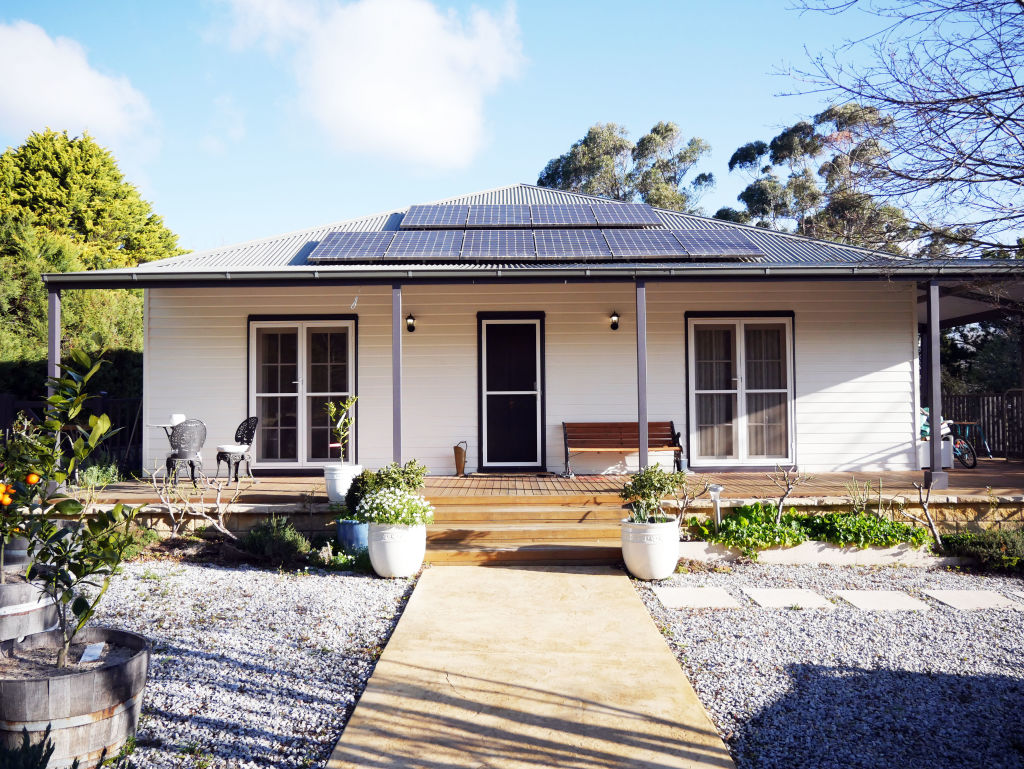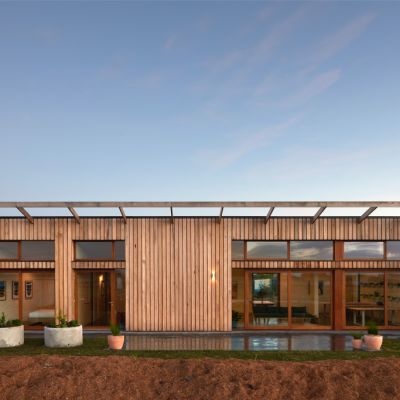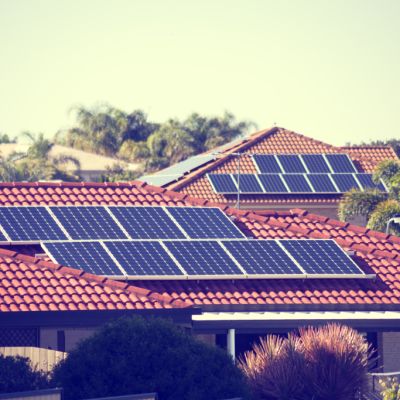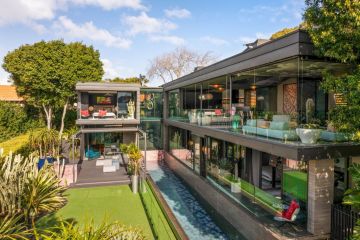More than half a million households able to green their home with ultra-low interest loan

More than half a million home owners will soon have an opportunity to make their homes more energy-efficient, as locked-down residents face bill shock in the winter chill.
The Commonwealth Bank is offering ultra-low interest green loans for home energy efficiency upgrades, extending the program to 600,000 home loan customers after a pilot earlier this year.
It will allow customers to purchase and install up to $20,000 worth of clean energy products, from solar panels to batteries, through a secured fixed rate of 0.99 per cent over 10 years. It will not attract any establishment or monthly loan service fees, and customers will not be penalised for early repayment.
Just under a thousand home owners took up the pilot scheme in February, funding almost $4 million in renewable energy upgrades.
NSW led the uptake, with households in Rouse Hill topping the list.
It was followed by Trinity Beach, Queensland and Bonython in the ACT.
Almost nine in 10 households chose to install solar panels and 10 per cent installed solar and batteries. Just 4 per cent installed batteries only.
| 1. Rouse Hill | NSW |
| 2. Trinity Beach | QLD |
| 3. Bonython | ACT |
| 4. Launceston | TAS |
| 5. South Morang | VIC |
| 6. Ashmore | QLD |
| 7. Turramurra | NSW |
| 8. The Ponds | NSW |
| 9. Glenelg | SA |
| 10. Pymble | NSW |
The introduction of another green loan by one of the big four banks would help normalise sustainability in homes, said Davina Rooney, Green Building Council of Australia chief executive.
“It will lead to substantial energy savings for those customers, it will lead to huge environmental savings, and it starts to normalise this change across the home’s space,” Ms Rooney said.
But it also sent a broader message to the housing market and policymakers that people were voting with their wallets on renewable energy within their own homes, Ms Rooney said.
“As many home owners are locked up, they discover just how uncomfortable their homes are and how expensive they are to run.
“So, we need to lean into better homes for all Australians, whether that is greening existing homes or working volume builders to get more sustainable products in the new home space.”
Commonwealth Bank of Australia would be funding $12 billion worth of sustainable housing upgrades if there were a 100 per cent take-up, which was a “hugely important” investment, said Daniel Gocher, executive director of the Australasian Centre for Corporate Responsibility.
“You can pretty much reduce your personal carbon footprint to zero. If you have a battery, you essentially go off-grid for most of the year,” Mr Gocher said.
If home owners installed only solar panels, it would cut down energy bills as well as reduce electricity prices, he said.
“If you’re washing through the day, the things that are most emissions-intensive, your washing, your drying, you can cut down your bills by a large amount.”
“It has a massive impact on the grid. [Given] what we’ve seen in the past couple of years, we’re leading the world in investment in rooftop solar.
“Everyone benefits from those lower electricity prices, and everyone benefits from less pollution.”
Whether it is to save money or help contribute to saving the environment, Commonwealth Bank of Australia’s retail banking group executive Angus Sullivan said customers were keen to take advantage of the loan.
“There is a bit of a process of engagement and learning for customers before they take it up. It’s a very good value offer of credit.
“Spend money on whatever [renewable technology] it is, and you will see the benefits month-to-month.”
We recommend
We thought you might like
States
Capital Cities
Capital Cities - Rentals
Popular Areas
Allhomes
More









